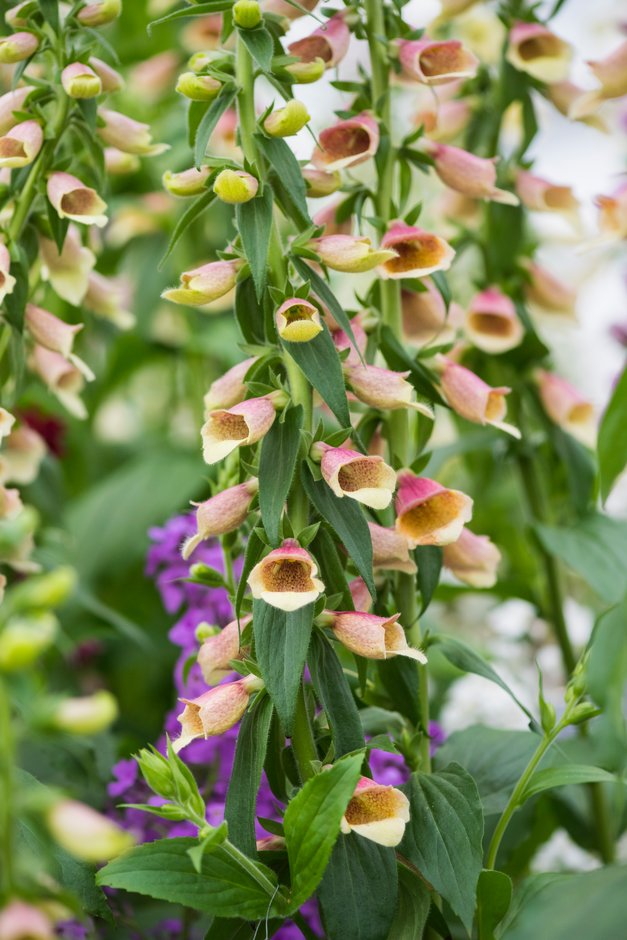Digitalis 'Polkadot Pippa' (Polkadot Series)
foxglove 'Polkadot Pippa'
A semi-evergreen, clump-forming herbaceous perennial to 1m in height, with rosettes of dark green, hairy leaves and tall, well-branched stems bearing apricot-pink flowers from late spring until late summer

Size
Ultimate height
0.5–1 metresTime to ultimate height
1–2 yearsUltimate spread
0.5–1 metresGrowing conditions
Moisture
Moist but well–drained, Well–drainedpH
Acid, Alkaline, NeutralColour & scent
| Stem | Flower | Foliage | Fruit | |
| Spring | Orange Pink | Green | ||
|---|---|---|---|---|
| Summer | Orange Pink | Green | ||
| Autumn | Green | |||
| Winter | Green |
Position
- Full sun
- Partial shade
Aspect
South–facing or North–facing or West–facing or East–facing
Exposure
Exposed or Sheltered Hardiness
H4Botanical details
- Family
- Plantaginaceae
- Native to GB / Ireland
- No
- Foliage
- Semi evergreen
- Habit
- Columnar upright, Clump forming
- Potentially harmful
- TOXIC if eaten. Wear gloves and other protective equipment when handling TOXIC to pets - see the HTA guide to potentially harmful plants for further information and useful contact numbers
- Genus
Digitalis can be biennials or usually short-lived perennials forming a rosette of simple leaves with bell-shaped flowers in slender, erect, usually one-sided racemes
- Name status
Accepted
How to grow
Cultivation
Will grow in almost any soil or situation except very wet or very dry; ideal site is humus-rich soil in partial shade. See foxglove cultivation for further advice
Propagation
Propagate by division in spring
Suggested planting locations and garden types
- Cottage and informal garden
- Wildlife gardens
- Flower borders and beds
Pruning
Cut back the main flower spike as it fades to encourage the growth of flowering side shoots
Pests
May be susceptible to aphids and leaf and bud eelworm
Diseases
May be susceptible to powdery mildews, downy mildews and leaf spot
Love gardening
Sign up to receive regular gardening tips, inspiration, offers and more
View our Privacy Policy
Get involved
The Royal Horticultural Society is the UK’s leading gardening charity. We aim to enrich everyone’s life through plants, and make the UK a greener and more beautiful place.